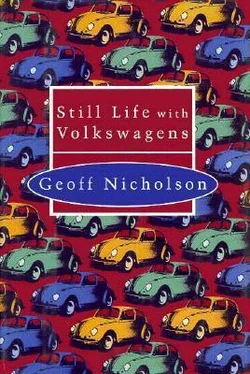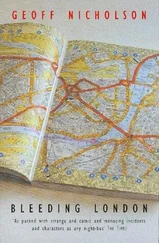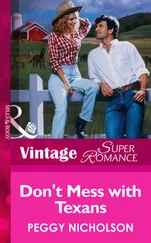They drive until they come to a highly accurate though utterly ersatz replica of a 1950 sAmerican diner. There is a sweep of cheap stucco, a lot of glass, some multicoloured neon. It is profoundly not Charles Lederer’s kind of place but he runs alongside Spider as they dash across the rain strewn forecourt of movie America, into the diner.
They find a booth. There is a juke box console on the table, and salt and pepper shakers in the shape of the Empire State and Chrysler buildings. Charles Lederer finds the menu a mysterious and lurid document, so when he hears his companion ordering a chilli dog he orders one too. It’s easiest that way. They don’t exchange more than a few words all the time they sit there, but it is not an uneasy silence. They recognise they have nothing in common and are grateful for it.
After the food has arrived and been eaten Spider seems in no hurry to leave. That’s fine with Charles Lederer too. They both stare out of the windows at the streaked, black view, and as they innocently watch the rain, the scene suddenly, abruptly dislocates, explodes into yellow and white, like a bleached negative or a smashed fried egg. Spider’s Volkswagen explodes, is savagely ripped apart, flayed into shrapnel. The remains of the car sit twisted and angular, writhing in a ball of scorching orange flame that no amount of rain can extinguish.
Spider’s face hangs open in horror and disbelief. Charles Lederer’s face is beatific, as if he has just seen a miracle.
♦
It is nine o’clock in the evening and Fat Les locks up the workshops and showroom of Fat Volkz Inc, and starts the journey home. His everyday vehicle is a big, battered white Ford Transit, the kind of thing that can burn off quite a few Beetles at the traffic lights. But these days Les can’t be bothered to burn off anybody. Who needs it? Who needs that kind of aggression and competitiveness, that whole small-penis stuff? But that doesn’t prevent others trying to provoke him. Les is a calm, leisurely, laidback driver these days, and that means he is constantly being cut up, overtaken on blind corners and hooted at for being too slow off the mark.
He isn’t feeling particularly ill-disposed towards the world tonight, but it’s been a long day and he’s tired and he’d like to get home smoothly and without hassle. The journey home is a slow, uninspiring, urban and suburban drive, with a lot of lights and stop and give way signs, and he really doesn’t need the kind of clown who’s currently playing silly buggers in the car behind him. The fact that the car’s a fairly good-looking yellow Beetle certainly doesn’t make Les any more sympathetic.
Each time Fat Les comes to a set of lights or a stop sign the driver of the Beetle pulls right up to his rear bumper and then, when Les can go, sounds the horn to tell Les to get a move on, that he’s not driving briskly enough. This happens several times, and despite Les’s willingness to let himself be overtaken, the yellow Beetle never quite manages to get past. When they arrive at the fourth set of red traffic lights Les has had enough. When the lights change to green he doesn’t move. The driver of the Beetle sounds his horn again. Les, quite coolly, raises the engine’s revs on the Transit. He puts the van in reverse, rapidly lets in the clutch and the Transit leaps backwards at some speed. It collides with the front end of the Beetle, completely demolishing it.
There is no damage whatsoever to the Transit, and even if there was, it wouldn’t look especially out of place on the battered old rear end. There are no witnesses and Les reckons that even if the driver reports him to the police, Les will simply say the car ran into the back of him. Who’d believe that a van driver would deliberately reverse into someone behind him at a traffic light?
Les can’t see how the driver of the Beetle is reacting. He or she doesn’t even get out of the car. Les drives away. He feels peculiarly pleased with himself. He savours the fact that destroying Beetles can be every bit as much fun as restoring and recreating them.
♦
Next morning when Fat Les arrives to open up Fat Volkz Inc, there appears to be yet another customer waiting for him. It’s a woman. She doesn’t look like the usual type of punter but Les knows that Volkswagen enthusiasts come in all shapes and sizes. She’s tall, not old, and has cropped red hair. Her body is athletic, perhaps toned up by a little body building. She’s dressed in a long, trailing raincoat over an expensive charcoal two piece, and she wears a pair of very high-heeled alligator skin court shoes. She says, “Good morning, I’m Detective Inspector Cheryl Bronte and I understand you know a thing or two about Volkswagens.”
“Who told you that?” Les asks, never too keen to help the police with their enquiries.
“Everybody tells me that.”
“Must be true then.”
She smiles at him, but it is a smile for her own benefit, not for his.
“Adolf Hitler’s favourite car, right?” she asks.
“In a way,” says Les.
“Is that what you like about them?”
“No,” says Les. “I like the fact I can make a living out of them. Okay?”
“Okay. I’m looking for a friend of yours. Somebody called Carlton Bax.”
“Who’s that?”
“Come on Les, he’s a customer of yours. You did some restoration for him,” and she consults a notebook, “three months ago.”
“If you say so.”
“Yes I do. It was a Kubelwagen. I take it you don’t restore one of those every day.”
“Oh, him,” says Les. “Was his name Carlton Bax? I always forget names. But yeah, okay, so I remember him. He was all right. More money than sense, but all right.”
“Have you seen him lately?”
“No. Has he gone missing?”
“How did you know?”
Les looks suitably and indeed genuinely surprised. Of course he has no idea that Carlton Bax has disappeared. Even if it had been reported in the papers, which it still hasn’t, Les, being no great reader, still wouldn’t have known about it.
“I didn’t know,” he protests. “I mean it was the way you said it. How do you mean, disappeared?”
“One day he’s here, the next day he’s not,” says Cheryl Bronte. “That sort of disappeared.”
“Kidnapped?” Les enquires.
“Do you think so?”
“I don’t bloody know, do I?”
“We’re not ruling it out,” says Cheryl Bronte. “We’re not ruling out anything.”
“Well, I hope you find him,” says Les.
“You can’t tell me where he is, then.”
“Of course not,” says Les. “Don’t be silly.”
She gives Les a stare that says silliness is no part of her make up.
“Do you know anything about exploding Volkswagens?” she asks.
“Eh?” says Les.
“You haven’t heard of any Beetles around here being blown up, fire-bombed, that kind of game?”
“This is Southend,” says Les.
“Mmm,” says Cheryl Bronte meaningfully, but Les doesn’t know what she means. “And obviously it’s the kind of thing you’d hear about, being in the trade.”
“Yes,” Les admits.
“Because you see it’s curious isn’t it? There are Volkswagen Beetles blowing up all over the country, but you haven’t heard about it.”
“What?” says Les.
“It’s a coincidence, isn’t it? Or maybe the opposite.”
“I don’t know what you’re talking about,” says Les, thoroughly confused.
“Well, here’s a number you can ring if and when you hear anything,” Cheryl Bronte says, and she hands Fat Les a card bearing a phone number. “If I don’t hear from you, well, one way or another I’m sure I’ll see you again.”
Les says thank you for the card. It’s a stupid thing to say, but he’s just so glad the conversation is coming to an end. Cheryl Bronte walks away, clacking on her alligator skin heels, and Les is left wondering whether members of the police force normally go around handing out business cards.
Читать дальше












